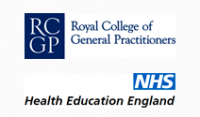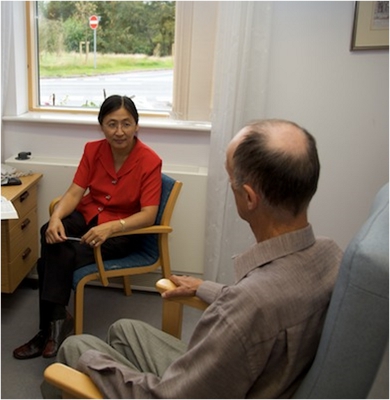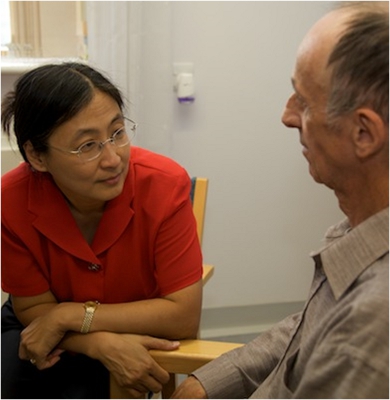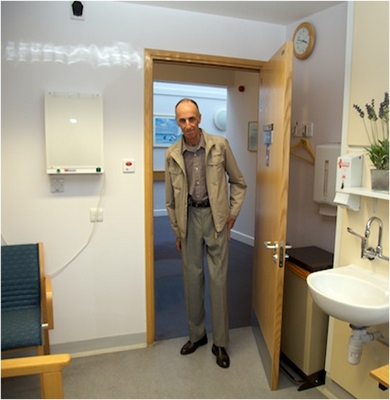Difficult Conversations in Palliative Care course for GPs



There are inevitable times when GPs are faced with difficult conversations with patients or their friends or relatives, particularly in palliative care situations.
This session aims to provide some strategies to tackle common difficult conversations.
This session was reviewed by Khyati Bakhai and last updated in June 2018.
Learning Objectives
By the end of this session you will be able to:
- Explain how to adapt communication skills to meet patient needs
- Define whether and how relatives and others might be involved
- Describe the need to share information with patients in an honest and unbiased manner
When working in general practice, it is of vital importance to have good communication skills. This is particularly so when there are difficult issues to broach with patients, or their carers or relatives.
Chantal is a working GP at The Banks and Bearwood Medical Practices in Bournemouth and a Fellow of the Royal College of General Practitioners. She has formal academic training with an MSc from Southampton University in Research in Health and a PhD exploring the effects of community support on the psychological health of informal carers.
Chantal has been involved with education since 1999 when she became the lead author and founder editor of the Oxford Handbook of General Practice, which is now in its fifth edition. In 2007 she founded the Royal College of General Practitioner's educational journal, InnovAiT, which she edited until 2017.
Chantal is also currently a Visiting Professor at the University of Westminster Centre for Resilience involved in research and educational activities promoting the wellbeing of healthcare professionals.


Max is currently a lecturer in palliative medicine at the University of Ulster, consultant at the Northern Ireland hospice and honorary consultant in palliative medicine at the Princess Alice Hospice, Esher. He is also the special adviser to the hospice friendly hospitals programme in Dublin and Director of Project ECHO at Hospice UK in London
He is co-author of the Oxford handbook of Palliative Care, Oxford Core text Oncology, The Oxford GP Library Pain and Palliation, London and Belfast Palliative Care Guidelines and series editor of the Oxford specialist end of life handbooks.
Max is the originator of the Princess Alice certificate in Essential Palliative Care which has trained over 1000, doctors and nurses since it began in 2001 and is now running in Nepal, India, Kyrgystan as well as three centres across the UK.
- Communication Impairments Part 4: Autistic Spectru...
- Posted By eIntegrity Healthcare e-Learning
- Posted Date: 2025-01-22
- Location:Online
- This session is the last of four that looks at different speech, language and communication impairme...
- Communication Impairments Part 3: Cleft Palate, He...
- Posted By eIntegrity Healthcare e-Learning
- Posted Date: 2025-01-22
- Location:Online
- This session is the third of four which describe different speech, language and communication impair...
- Communication Impairments Part 2: Specific Speech ...
- Posted By eIntegrity Healthcare e-Learning
- Posted Date: 2025-01-22
- Location:Online
- This session is about speech sound disorder (SSD). It describes the characteristics associated with ...
- Communication Impairments Part 1: Late-talking Tod...
- Posted By eIntegrity Healthcare e-Learning
- Posted Date: 2025-01-22
- Location:Online
- This session is the first of four which describe different speech, language and communication impair...
- Typical Development Part 2: First Words and Early ...
- Posted By eIntegrity Healthcare e-Learning
- Posted Date: 2025-01-22
- Location:Online
- This session gives an overview of the main aspects of how language typically develops in children. I...







